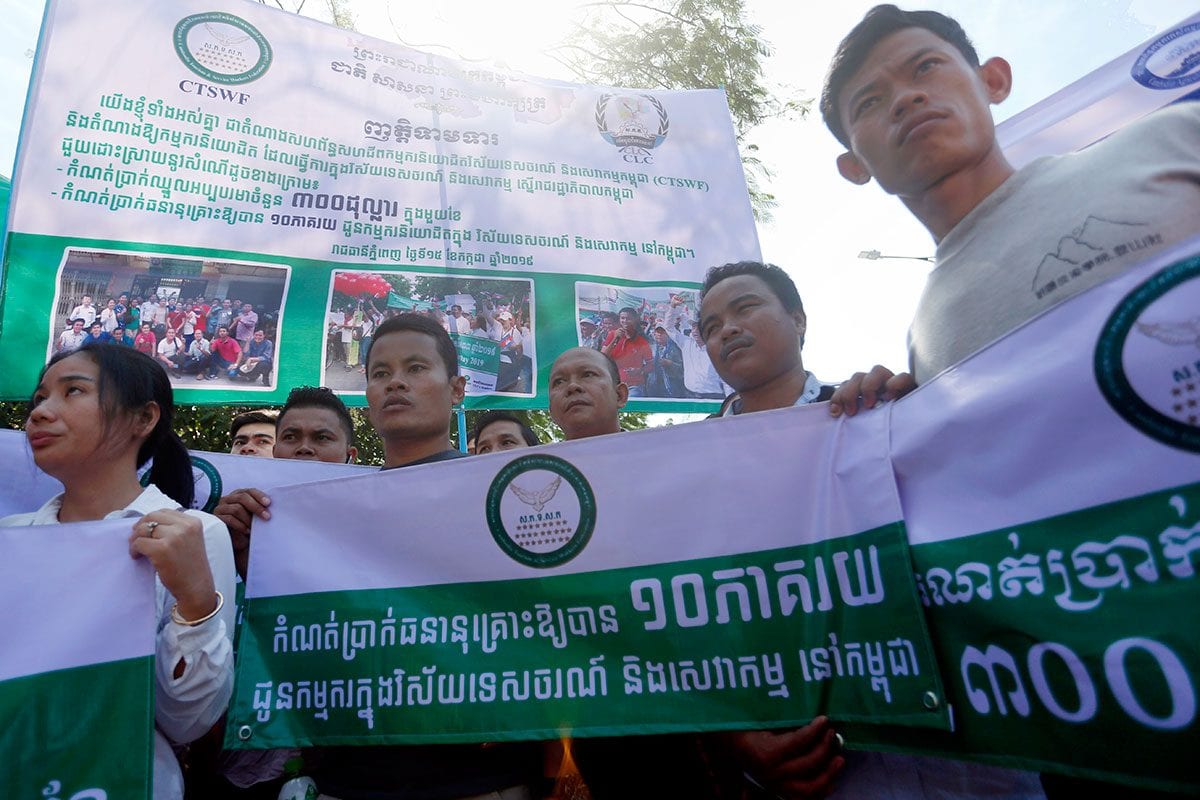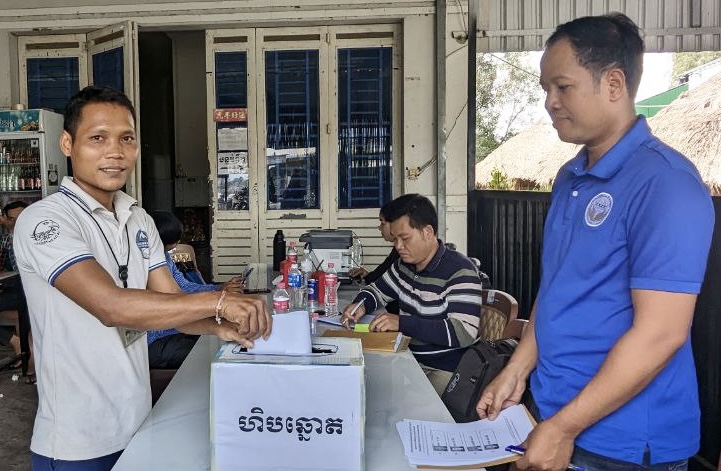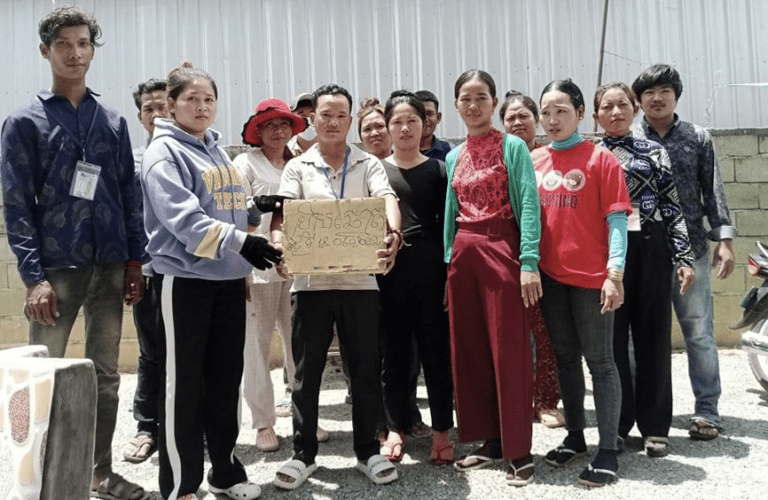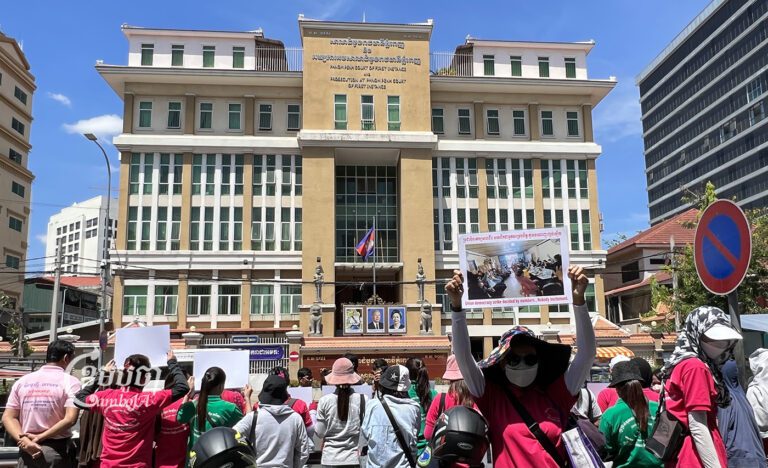Hotel workers say their wages haven’t risen for five to six years, and they are agitating for change.
“The basic wage for simple staff is only $85, while the workers at the Cambodiana Hotel get $75 per month,” said Dam Sophat, a hotel worker and union representative at the Sunway Hotel.
“The salary isn’t fair,” he told CamboJA News. “The rooms they sell at the hotel have a higher rate per night than our salary in a month.”
The government passed a Minimum Wage Law last year, finally codifying a process to set a wage floor across industries — as stipulated in the 1997 Labor Law but never implemented. Currently, only garment factory workers, forming the backbone of Cambodia’s economy, have a guaranteed minimum wage.
A year on since the Minimum Wage Law’s enactment, however, workers in hospitality, construction, agriculture and other sectors have yet to see any progress toward a guaranteed minimum.
They have repeatedly petitioned the government, and on July 15 gathered outside the Labor Ministry to again make their case.
“In three months, if we don’t get any feedback from the ministry we’ll gather again to follow up on our demand,” said Ath Thorn, president of the Cambodian Labor Confederation.
About 150 representatives from Thorn’s union as well as the Cambodian Tourism and Service Workers Federation and Cambodian Agriculture of Workers Federation submitted their appeal to ministry officials.
Thorn said the ministry had accepted the petition, but made no indications as to whether they would accept their demands.
Officials had “promised to bring it to the Labor Minister, and give us feedback when the minister decides anything,” he said.
Heng Sour, the Labor Ministry’s spokesman, told CamboJA News by phone that determining appropriate minimum wage levels was a difficult and highly technical undertaking, and would require more analysis and support from groups like the International Labor Organization.
“We need to study the structure of different industries to understand what policies and mechanisms we need to expand the minimum wage to other sectors,” Sour said.
Following massive rallies in 2013 and 2014, garment factory wages have seen a rapid rise, with the government-stipulated minimum increasing from $100 in 2014 to $182 as of January this year.
The industry also has outsized clout in Cambodia’s economy, last year making up 74 percent of all exports at a value of $10 billion, according to the National Bank of Cambodia.
For Sophat, the Sunway Hotel worker, however, the special treatment of garment factory workers seems unjustified.
“Working in hotels requires higher education levels — we need to finish high school at least, and many of the workers are even university graduates,” he said.
“It also requires that we speak foreign languages, like English, Chinese or French,” Sophat added. “By comparison, garment workers don’t have as high levels of education and don’t speak any foreign languages. But their wages are much higher than ours.”
He would continue to push for a minimum wage for his industry, set at a level that would make it regionally competitive, he said.
For that to happen, the base rate for hotel workers would need to triple, he said.
“At expensive hotels like ours, and at many other big hotels and international brands — plus considering our higher education levels — we should get at least $250 as a minimum wage,” Sophat said.











